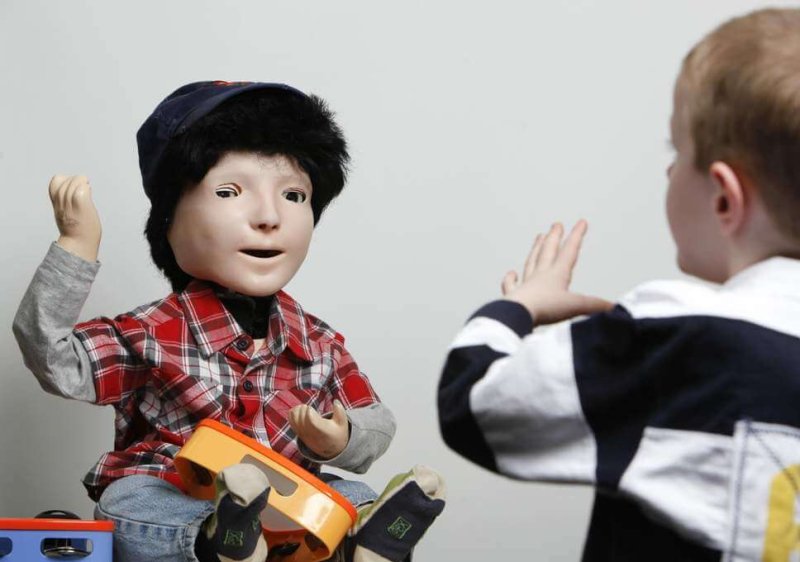Previous research suggests robots are well received by children with autism spectrum disorders, and there’s plenty of anecdotal stories of children showing progress with interaction and communication after working with robots. In the UK, researchers based at the University of Hertfordshire have had plenty of positive attention around Kaspar, a child-like robot that helps teach children social skills.
…
These robots aren’t designed to replace human therapists, but to be used as a tool by them. The therapist might use the robot as a focal point for the child, as some find it easier or more engaging to interact with a robot than an adult, or the therapist may use it to show a movement the child should mimic, a key aspect of behaviour-based therapies.
…
Robots may help treat children with autism, but we need to be wary of treating them like robots in return. Are machines the best way to teach social interaction? Do we risk further entrenching flawed assumptions that people with autism are machine-like? Could we be ignoring known successful therapies in favour of high-tech wizardry?
…
[T]herapy robots are worth investigating, so long as they’re about bettering the lives of affected children — and not merely about making clever, headline-grabbing robots.Read full, original post: The questionable ethics of treating autistic children with robots































